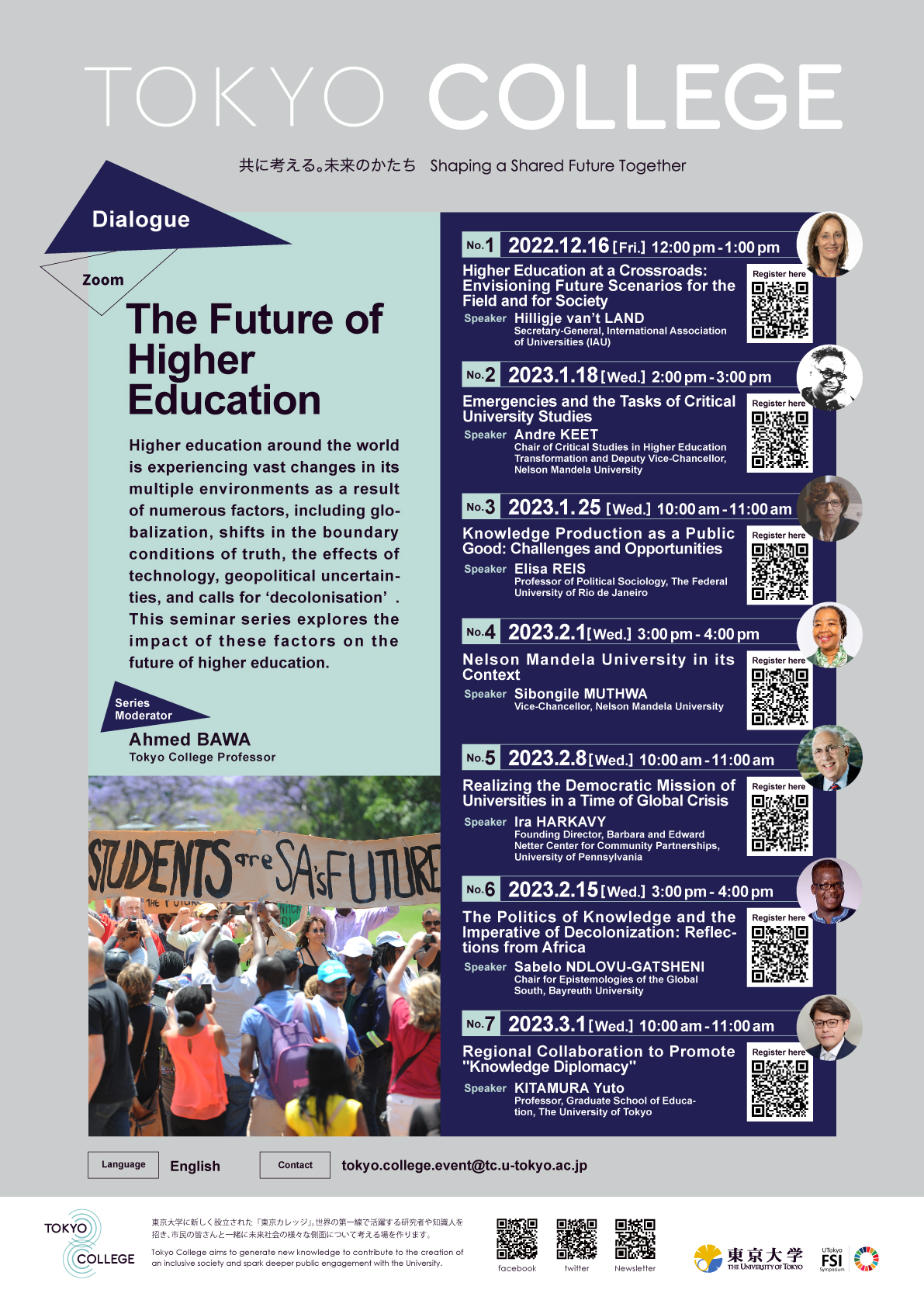“The Future of Higher Education” #7 Regional Collaboration to Promote “Knowledge Diplomacy”

| Date(s) | Wednesday, 1 March 2023, 10:00 am - 11:00 am |
|---|---|
| Venue |
Zoom Meeting (Register here) |
| Registration | Pre-registration required |
| Language | English |
| Abstract |
Higher education around the world is experiencing vast changes in its multiple environments as a result of numerous factors, including globalization, shifts in the boundary conditions of truth, the effects of technology, geopolitical uncertainties, and calls for ‘decolonisation’. This seminar series explores the impact of these factors on the future of higher education.
For more information about the “The Future of Higher Education” Dialogue Series, click here. |
| Speaker Profile |
Speaker KITAMURA Yuto (Professor, Graduate School of Education, The University of Tokyo)
Moderator Ahmed BAWA (Tokyo College Professor) |
| Organized by | Tokyo College, The University of Tokyo |
| Contact | tokyo.college.event@tc.u-tokyo.ac.jp |
















